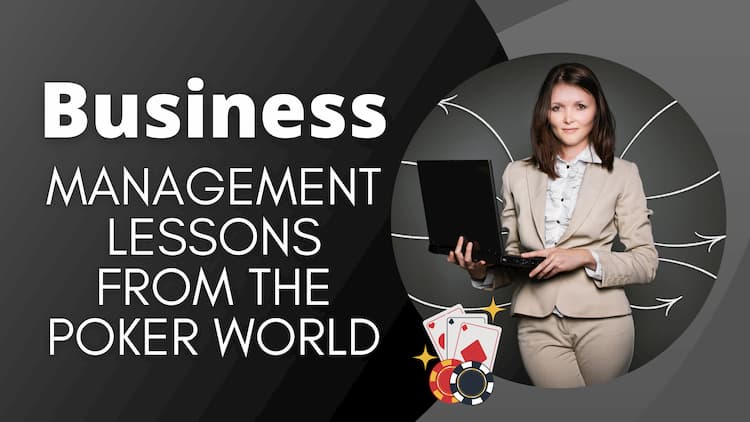In recent years, the game of poker has become globally recognized as a mind sport. It’s a game of skill, and professional poker players are renowned for their shrewdness, effective decision making, and innate ability to make difficult decisions to reap significant rewards.
Remind you of anyone?
Yes, the qualities that make up the world’s best professional players also make up successful business leaders and entrepreneurs. It’s no surprise, then, that former pros like Vanessa Selbst have been snapped up by Wall Street.
The similarities between poker and business management are so close that both owners of start-ups and established enterprises can learn a lot from playing poker. By taking part in a poker game, whether in a casino, at home, or at an online platform, business owners have to get to grips with everything from nailing and executing a winning strategy to making critical decisions using very limited data.
Here are key lessons that business owners and entrepreneurs from the poker table.
Page of Contents
1. Know when to “hold, fold, or push”
Even the most novice poker player has heard that old cliché of knowing when to hold, and when to fold the hand they’ve been dealt. All too often, however, players forget about the folding part.
As poker author Duncan Palamourdas states in this excerpt from his newest strategy book. “People do not like to fold. Period”, even though folding is a necessary part of both the strategy of the game of poker and running a business. By folding a hand or a business deal, you get the chance to sit back and observe exactly what’s going on at the table – board room or poker.
On the other end of the scale, is knowing exactly when to push. A player who is happy to fold regularly is much more likely to then push a potentially winning hand rather than hold it, and this can apply to the business world too. When you have a competitive advantage, for example, that’s the perfect time to push and go all-in when it comes to business development.
2. Act as though you belong at the table
This doesn’t mean to act arrogant or entitled, simply behaving as though you’re so familiar with the competitive environment that you can remain humble and concentrate solely on your strategy.
Yes, poker is a game of cards, but the best players know that they’re playing their opponents, not the cards. They’re experts at reading gestures, tone of voice, actions, and decisions. Displaying any type of extreme emotion at the poker table leaves you vulnerable and signals you out as someone who is uncomfortable with the events that are unfolding.
In the business world, acting as your company or enterprise belongs “at the table” translates to focusing on your ultimate goals and objectives. Yes, small wins along the way should be recognized, but until you hit your primary goal, a modest and humble approach will serve you well in the long run.
3. Don’t get caught up in short-term thinking
This feeds directly into the next business management lesson to learn from the art of poker – ignore short-term variance.
A poker player that’s always focusing on the short-term variance whether they’re winning or losing, is on a steady spiral into decline. Short term thinking is limiting and can turn ordinary situations, such as losing a game, deal, or sale, into a crisis.
Long term thinking, on the other hand, is a much healthier approach to take as a poker player or a business owner. Sure, there will always be players and entrepreneurs who are only interested in what they can gain in the short term, but if you want to last in either field you have to focus on those moves that will ensure profitability in the long run.
4. Never chase a loss
There are times in every professional poker player’s career when they’re losing more games than they would like. These aren’t just the odd games here and there, rather, they’re their games that they ordinarily would be able to win in their sleep. This is a sign that a player is beginning to tilt, and it’s a make or break situation for the player in question.
It’s tempting to chase a loss by just playing one more game or making one more deal or investment to recover financial losses or reputation, but this would be a bad judgment call. Very rarely do the decisions that have been made under these circumstances lead to fruitful results.
Instead, players and business owners facing this type of situation should stop and regroup until they’re able to make a move or decision based on its specific merit, rather than what came before.
